 Are you a PGR student, research assistant or early career researcher working in the areas of engineering, biological and biomedical sciences, or physical sciences?
Are you a PGR student, research assistant or early career researcher working in the areas of engineering, biological and biomedical sciences, or physical sciences?
Then the SET for BRITAIN awards could be your opportunity to present your research to MPs at an exhibition in London in March 2012. The aim is for applicants to present their high level science research to a lay audience via a poster.
The overall aim of SET for BRITAIN is to encourage, support and promote Britain’s early-stage and early-career research scientists, engineers and technologists who are the “engine-room” of continued progress in and development of UK research and R&D, and ultimately of UK plc.
Early-stage researchers include university research students, postgraduates, research assistants, postdocs, research fellows, newly-appointed lecturers, part-time students and their equivalents in national, public sector and industrial laboratories, etc, and appropriate MSc students, all of whom are engaged in scientific, engineering, technological or medical research and are achieving results.
 On Monday 12th March SET for BRITAIN will hold a poster exhibition and reception in the House of Commons Terrace Marquee during National Science and Engineering Week. The exhibition will be of posters submitted by applicants to the SET for BRITAIN competition. The closing date for entries is Saturday 24 December 2011. There will be an initial selection by the judges and applicants will be informed by the end of January 2012 whether their application to take part in the exhibition has been successful.
On Monday 12th March SET for BRITAIN will hold a poster exhibition and reception in the House of Commons Terrace Marquee during National Science and Engineering Week. The exhibition will be of posters submitted by applicants to the SET for BRITAIN competition. The closing date for entries is Saturday 24 December 2011. There will be an initial selection by the judges and applicants will be informed by the end of January 2012 whether their application to take part in the exhibition has been successful.
In order to encourage maximum participation by early-career researchers and Members of Parliament the competition is divided into three distinct areas:
- Engineering
- Biological and Biomedical Science
- Physical Sciences (Chemistry and Physics)
Each section has a separate two-hour poster exhibition and judging session during the day, ending with a reception and prize-giving. It is expected that there will be about 60 posters on display in each session, representing the best in each field as part of a national competition for a prestigious Medal and substantial monetary prize.
A wide range of important scientific and engineering institutions are lending their support to this event, including the Society of Biology, the Institute of Physics, the Royal Academy of Engineering, and the Royal Society of Chemistry.
SET for BRITAIN Awards are made solely on the basis of the very best research work and results by an early-stage or early-career researcher. Prizes will be awarded for the scientific posters presented in each discipline which best communicate high level science to a lay audience.
To read a review about the event written by one of this year’s poster exhibitors, see Blanka Sengerova’s write up on the Vitae website.
This is a fantastic opportunity for BU staff and students to gain experience of communicating science with a lay audience and also for their research to make an impact on MPs.
For further information, including details on how to apply, visit the SET for BRITAIN website.



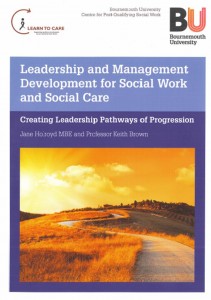
 The Enterprise Training Programme is an established training scheme for researchers from any university wanting to learn more about business and the commercialisation of research.
The Enterprise Training Programme is an established training scheme for researchers from any university wanting to learn more about business and the commercialisation of research. Welcome to RCUK Demand Management week on the blog! Today’s focus is on the Arts and Humanities Research Council (
Welcome to RCUK Demand Management week on the blog! Today’s focus is on the Arts and Humanities Research Council ( Welcome to RCUK Demand Management week on the blog! Today’s focus is on the Natural Environment Research Council (
Welcome to RCUK Demand Management week on the blog! Today’s focus is on the Natural Environment Research Council ( Welcome to RCUK Demand Management week on the blog! Today’s focus is on the Economic and Social Research Council (
Welcome to RCUK Demand Management week on the blog! Today’s focus is on the Economic and Social Research Council (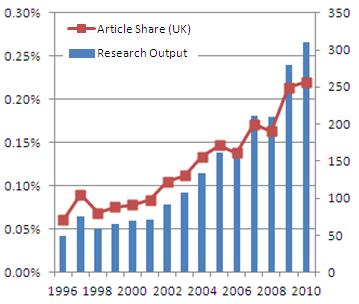
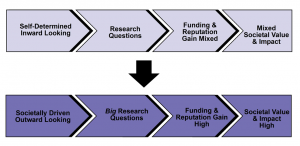




 The EPSRC has
The EPSRC has  Welcome to RCUK Demand Management week on the blog! Today’s focus is on the Engineering and Physical Sciences Research Council (
Welcome to RCUK Demand Management week on the blog! Today’s focus is on the Engineering and Physical Sciences Research Council (
 On Monday 12th March SET for BRITAIN will hold a poster exhibition and reception in the House of Commons Terrace Marquee during National Science and Engineering Week. The exhibition will be of posters submitted by applicants to the SET for BRITAIN competition. The closing date for entries is Saturday 24 December 2011. There will be an initial selection by the judges and applicants will be informed by the end of January 2012 whether their application to take part in the exhibition has been successful.
On Monday 12th March SET for BRITAIN will hold a poster exhibition and reception in the House of Commons Terrace Marquee during National Science and Engineering Week. The exhibition will be of posters submitted by applicants to the SET for BRITAIN competition. The closing date for entries is Saturday 24 December 2011. There will be an initial selection by the judges and applicants will be informed by the end of January 2012 whether their application to take part in the exhibition has been successful.
 The
The 
 Welcome to RCUK Demand Management week on the blog! There has been a lot of discussion and debate about demand management over the past 12 months or so, particularly in response to the
Welcome to RCUK Demand Management week on the blog! There has been a lot of discussion and debate about demand management over the past 12 months or so, particularly in response to the 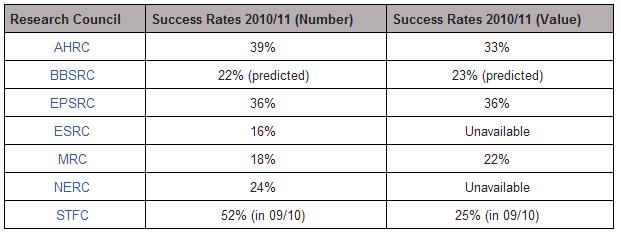
 What resources and processes has BU put in place to support Demand Management? – BU has established an
What resources and processes has BU put in place to support Demand Management? – BU has established an  The Wellcome Trust
The Wellcome Trust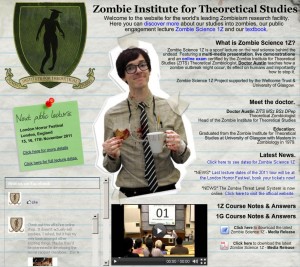












 BU Professor has been invited to a series of plenary and invited lectures.
BU Professor has been invited to a series of plenary and invited lectures. Research reaching non-academic audiences
Research reaching non-academic audiences April’s Café Scientifique – Should we help machines understand and respond to our emotions?
April’s Café Scientifique – Should we help machines understand and respond to our emotions? Postgraduate Research Experience Survey (PRES) 2024 – 2 WEEKS LEFT
Postgraduate Research Experience Survey (PRES) 2024 – 2 WEEKS LEFT Working with The Conversation: online training session – Wednesday 8th May
Working with The Conversation: online training session – Wednesday 8th May Apply for up to £1,000 to deliver an event and take part in a national festival of public engagement with research
Apply for up to £1,000 to deliver an event and take part in a national festival of public engagement with research MSCA Postdoctoral Fellowships 2024
MSCA Postdoctoral Fellowships 2024 Horizon Europe News – December 2023
Horizon Europe News – December 2023